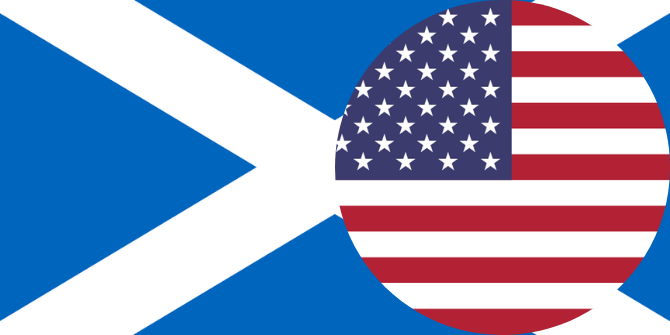 The UK is a world leader on foreign policy, but Brexit has the potential to alter the country’s ability to make its voice heard on the global stage. Karen E Smith writes that while the EU itself will also suffer from Brexit, paradoxically, Donald Trump’s election may stiffen the EU’s resolve to act on climate change and the nuclear deal with Iran. Will Britain join those efforts, or will the country be left on the sidelines?
The UK is a world leader on foreign policy, but Brexit has the potential to alter the country’s ability to make its voice heard on the global stage. Karen E Smith writes that while the EU itself will also suffer from Brexit, paradoxically, Donald Trump’s election may stiffen the EU’s resolve to act on climate change and the nuclear deal with Iran. Will Britain join those efforts, or will the country be left on the sidelines?
Brexit poses a considerable set of challenges for UK and EU foreign policy, even if the UK eventually negotiates a ‘Norway-plus’ or ‘Canada-plus’ type of arrangement with the EU. Not only are there no precedents for establishing extensive cooperation between the EU and a third country within the framework of the Common Foreign and Security Policy (CFSP), but ‘foreign policy’ links numerous areas of EU cooperation. Any agreement would have to go beyond the CFSP and include areas as diverse as international trade, development, energy, climate change, security and defence and enlargement policy.
Given this complexity – and the likelihood that the UK will not actually remain in the single market in the end – it is reasonable to assume that the UK will be left largely on the outside of EU foreign policy decision-making and implementation.
US troops fire a mortar during the Fearless Guardian II training exercise with Ukrainian troops at the International Peacekeeping Security Centre near Yavoriv, January 2016. Photo: US Department of Defense. Public domain
If this scenario does indeed come to pass, then what are the implications for British and EU foreign policy? For both sides, there are clearly greater losses than gains. The UK would lose the ‘multiplier effect’ that the EU provides. As the 2013 Review of the Balance of Competences between the UK and the EU found in the area of foreign policy, it was very much in the UK’s interests to work through the EU in a number of policy areas, because the UK benefits from the leverage of the single European market, and the range and versatility of the EU’s various policy tools.
These benefits far outweighed the disadvantages of EU foreign policy cooperation – uneven leadership, divisions and tensions between institutions at the EU level, the complexity and slowness of some policy instruments, lowest common denominator decision-making, and the difficulty of formulating clear and coherent strategy within the EU. (The recent EU Global Strategy is only a partial exception to this, as it still does not set out clear foreign policy priorities and a coherent plan of how to use the EU’s resources to achieve them.)
Although the UK would be free of such concerns once it leaves the EU, it is still unclear how it will be able to exercise anything like the same degree of international influence that it can as an EU member state. As the LSE Commission on Future of Britain in Europe argued, the formal right to take autonomous foreign policy decisions is not the same as the capacity to have influence and achieve goals. Other like-minded non-EU European states – notably Iceland, Norway and Switzerland – often mirror EU foreign policies in areas of interest to them (for example, peacekeeping or sanctions or relations with countries in the European neighbourhood): they cannot challenge or compete with the weight of the EU, while undermining EU policy can damage their own relationships with the EU, and following the EU’s lead can help further their interests. Will the UK behave in the same way?
For the EU, the loss of the UK also poses serious challenges. Although the UK has been somewhat disengaged from EU foreign and security policy discussions for a few years now (it was not much involved in diplomacy vis-à-vis the Ukraine crisis, or the refugee crisis, for example), the UK is still one of the acknowledged leaders on foreign policy issues. The European Council on Foreign Relations publishes an annual scorecard ranking EU member states according to the number of times that they are ‘leaders’ or ‘slackers’ on foreign policy; the UK ranks high on the leader scoreboard and low on the slacker one.
The EU would miss the UK’s resources: for example, the UK contributes a substantial sum to the EU’s budget, and therefore also to the budget for external relations and the European Development Fund. Although the UK has a reputation as an ‘awkward’ member of the EU club, it has rarely blocked foreign policy cooperation on its own. So the removal of the UK’s ‘veto power’ will not mean EU unity is any easier to achieve, and the loss of the UK will diminish the EU’s weight and standing in relations to other powers.
So without the UK, what are the prospects for EU foreign policy? Rather paradoxically, Donald Trump’s election as US president poses such difficult challenges for the EU that it may find the will and unity to protect its own interests. There are concerns that if Trump does ‘reset’ relations with Russia’s president Vladimir Putin, the EU consensus on sanctions against Russia could crumble. But Trump has also questioned several other policies dear to the EU: the deal with Iran on nuclear power; the international trading system based on the WTO; the recent Paris agreement combatting climate change. A US that actively sought to undermine these agreements could end up uniting the EU in opposition to it. This has happened in the past when US policy trampled on European interests. For example, the European Community united against the Reagan administration’s extraterritorial sanctions on companies working on the gas pipeline between the Soviet Union and Western Europe; the EU found a high degree of unity in opposition to the Bush administration’s denigration of the International Criminal Court; and the EU has long tried to lead the way on climate change, where the US has been particularly hostile.
While EU opposition would probably not alter US policy, the EU could take on more of a leadership role internationally, working to protect these achievements, especially given that there are other powers with which it could co-operate – for example, with China on climate change. This is not to underestimate the challenge ahead, nor dismiss the seriousness of the internal contestation of the EU project itself. But it is to argue that where one metaphorical door has closed (losing the UK), another has recently opened (assuming a leadership position in opposition to a more erratic, self-interested and/or isolationist US). If the EU walks through that door, then the UK will need to figure out where it stands: supporting the EU, or going it alone?
Note: This article originally appeared on the LSE Brexit blog.
Please read our comments policy before commenting.
Note: This article gives the views of the author, and not the position of USAPP– American Politics and Policy, nor of the London School of Economics.
Shortened URL for this post: http://bit.ly/2hD2yCG
_________________________________
 Karen E. Smith – LSE
Karen E. Smith – LSE
Karen E. Smith is Professor of International Relations and Director of the European Foreign Policy Unit at the LSE.







